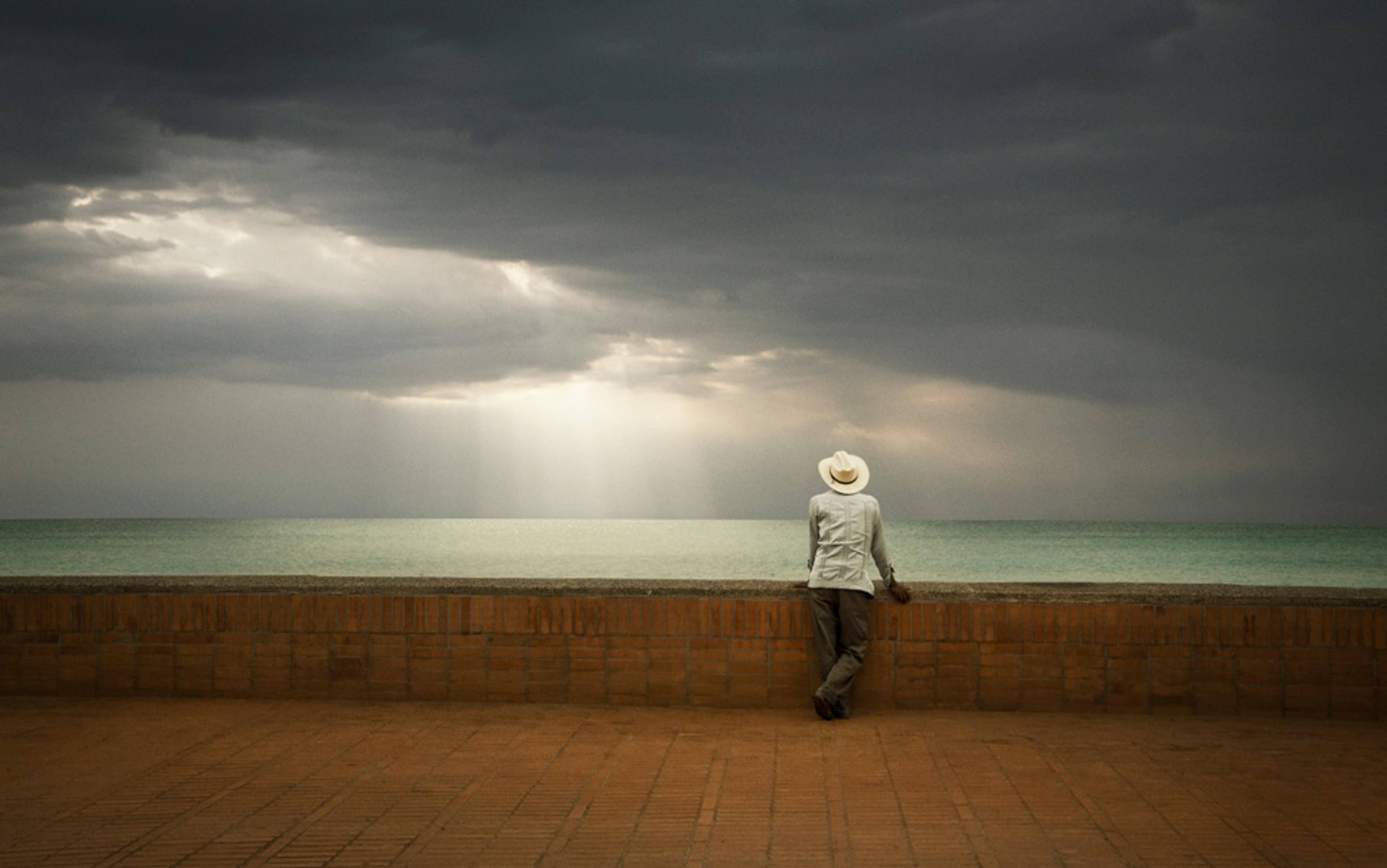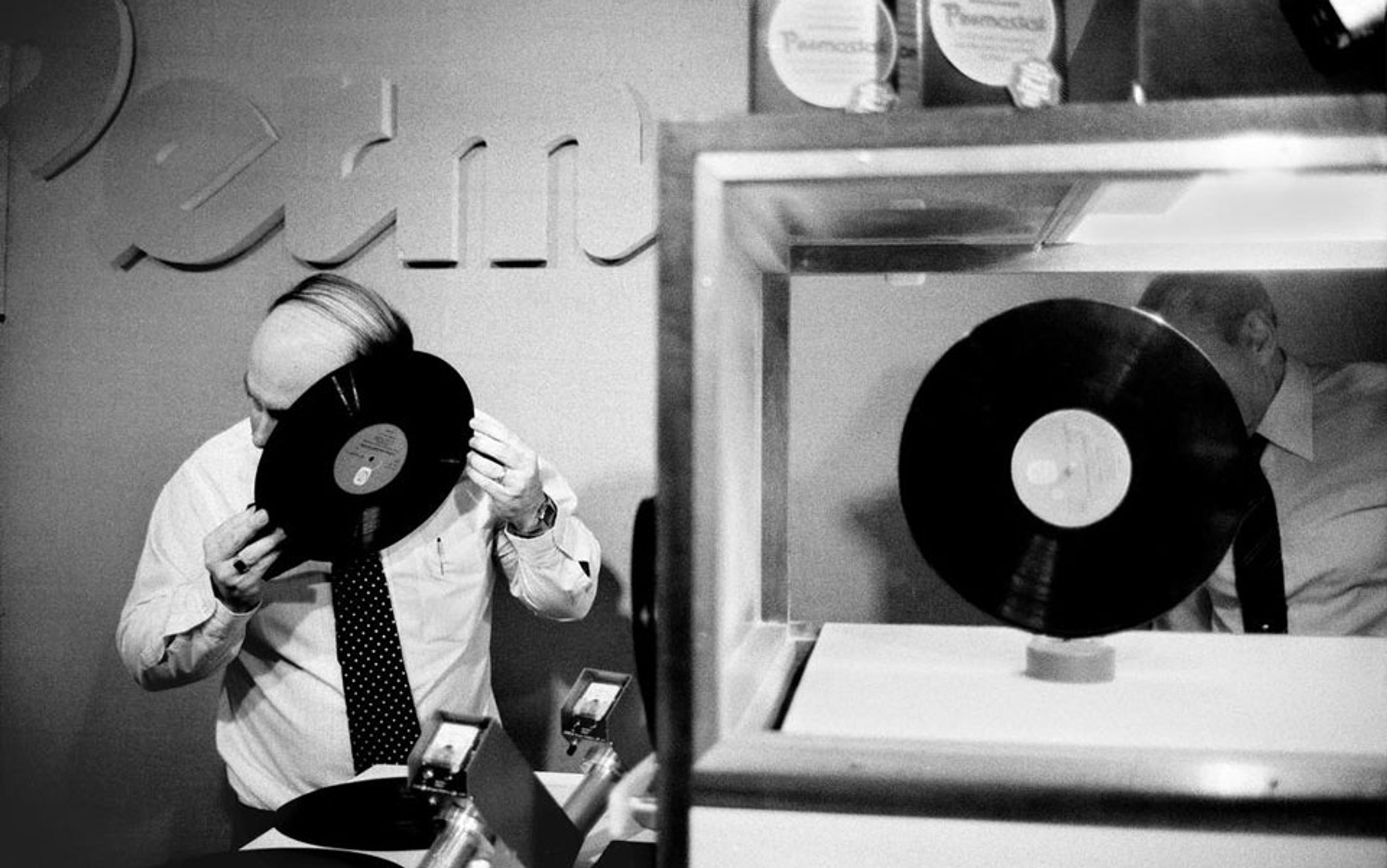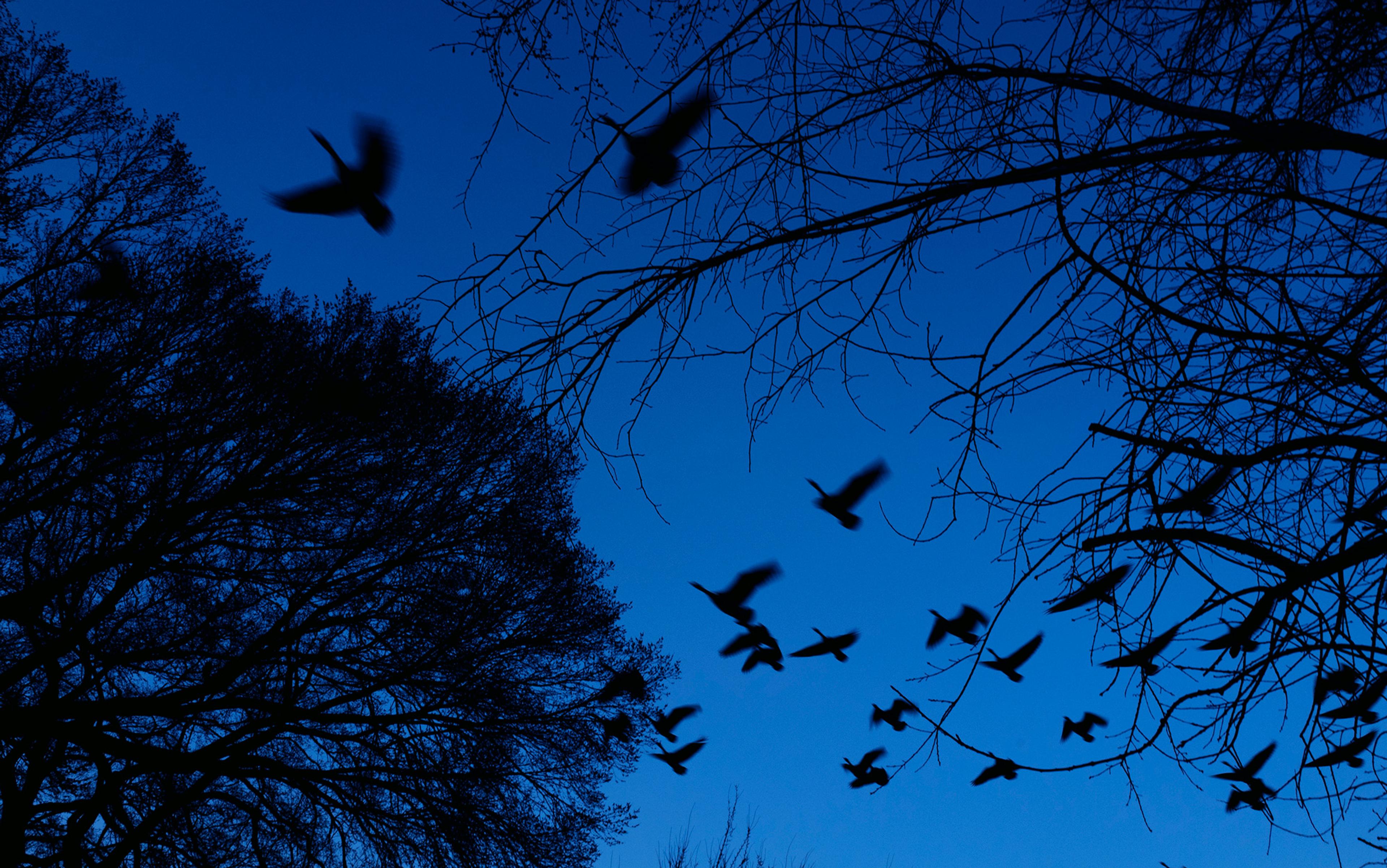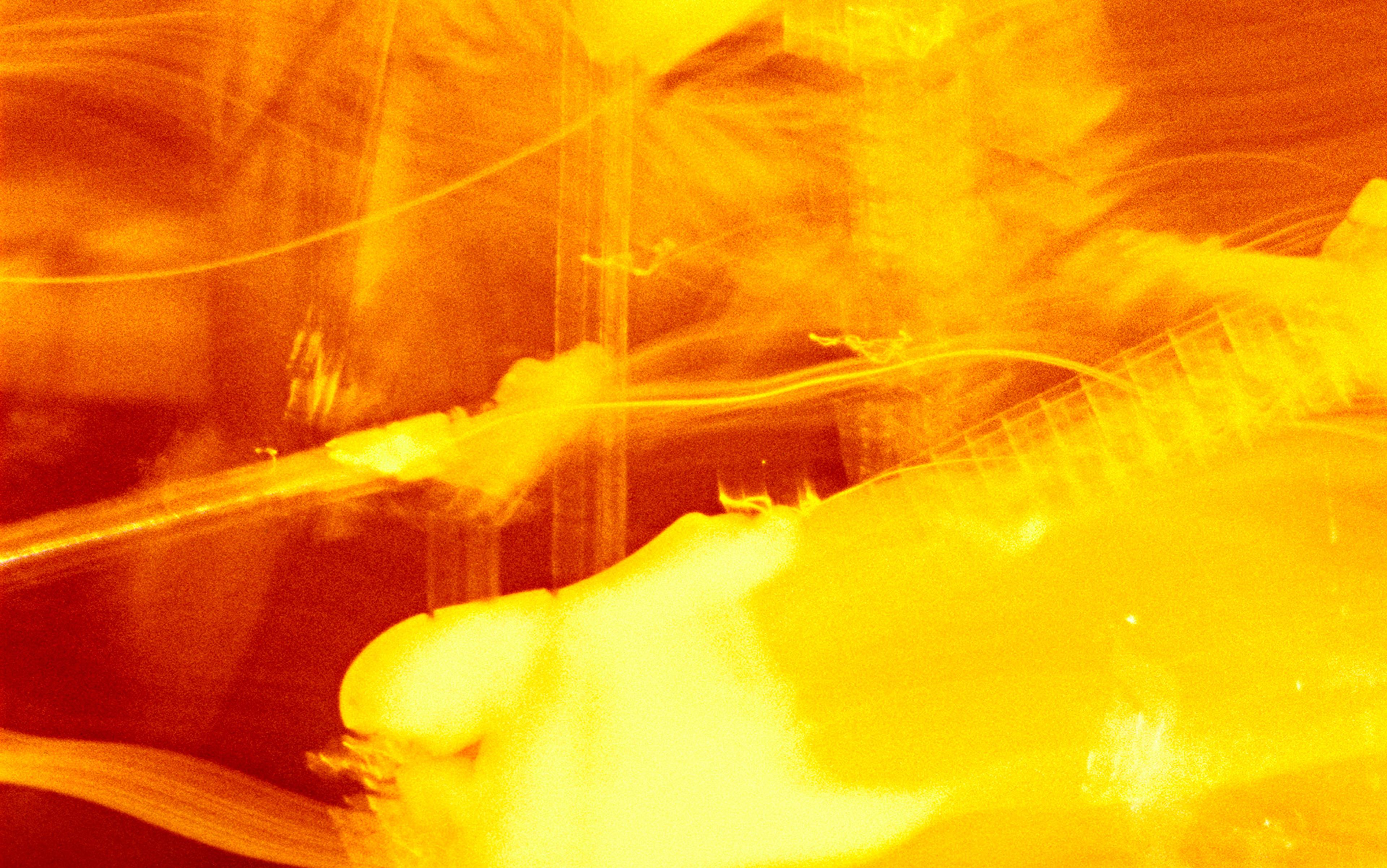When I was 23 years old, I lost my silence. Losing something that wasn’t there was way harder than one might expect. Its weightlessness was replaced by the sound of coins and brushing metal. In place of emptiness was a ceaseless, resonant and sustained sound that lacked an origin yet had mass.
Before the silence disappeared, it always punctuated sounds that came with context. The hurried little steps of a dog greeting someone. The shrill laughter of that slightly annoying neighbour. The sizzle followed by a deep murmur after plunging into a pool. Silence always gives in to let noise take its place. That is the constant dance that they share.
But all at once, when the expected silence was supposed to come back, instead I got a ringing. Five years later and I still hear it just as I did that first time: a ringing that, ironically, isn’t caused by anything in the outside world yet whose everlasting presence suggests otherwise.
Tinnitus is what this condition is called. It is similar to the noise you hear after a concert or a long party, but in some cases, like mine, it doesn’t go away after a day or two. This is precisely what makes it so frustrating in my opinion. It is not that the sound is particularly dreadful, and I’m fortunate enough to be someone whose personal whistle still allows them to hear what’s around. It is a condition that affects 10 to 20 per cent of the adult population, and each person experiences it in a different way, regarding volume and timbre. For someone like me, it’s not the pain of tinnitus that others might feel, but the sense of powerlessness that makes it so hard to deal with. The fact that it is always lurking between the spaces of real-world sounds, always there.
There’s no specific way to treat tinnitus, and no clear cause, either. It can be triggered in a myriad of ways. Hearing loss, earwax buildup, stress, jaw or neck injuries, ear infections and chronic illnesses are some of them, yet what causes our senses to perceive a noise that is not there remains uncertain.
In my case, it was a severe ear infection that left me with an acoustic version of a phantom limb in my head. In the case of chronic tinnitus, some neural pathways in the brain’s limbic system and adjacent areas appear to be rearranged. Some are overexcited while others appear to be suppressed which, given that this area of the brain is responsible for consciousness, awareness and emotional regulation, results in difficulty in evaluating intrusive acoustic signals and determining whether we should pay attention to them or let them fade into the background.
I remember when I realised that my tinnitus was not going to go away. I became terrified of enclosed spaces. I couldn’t put my headphones back on, and sleeping was a real struggle. At night, when everything was still, I would open all the windows near my room trying to focus on the sound of cars and dogs so that my internal buzzing wouldn’t win. And when it rained, I couldn’t be happier. The persistent percussion of raindrops against the walls and windows was like a white-noise marching band that pillowed my senses.
It was a natural acoustic therapy. A constant, repetitive and easy-to-ignore sound, as recommended by psychologists to alleviate the discomforts caused by chronic tinnitus.
I really missed the moments of silence as if I had lost someone close to me.
I’m not trying to minimise real loss and grief, but part of the grieving process revolves around accepting that someone close and special is not coming back, and I wasn’t willing to deal with the fact that, from that point onward, that was my reality.
Before we noticed, the forest had mitigated all our sounds
I became fixated with the sound, trying to identify if the pitch or texture changed throughout the day, even looking for it when external noise wouldn’t let me. When tinnitus settles in permanently, studies have found a reduction of grey matter and overexcitability in the nucleus acumbens of some patients. This part of the brain, located in the basal ganglia (directly connected to the limbic system), is strongly associated with addiction and depression. This results in strong and mixed emotional responses to acoustic stimulus. Of course, I can’t say for certain that this was happening in my case, but my concerns didn’t end there.
Masochistically, I began to look for silences wherever I could find them. As Susan Sontag wrote in ‘The Aesthetics of Silence’ (1969):
‘Silence’ never ceases to imply its opposite and to depend on its presence: just as there can’t be ‘up’ without ‘down’ or ‘left’ without ‘right’, so one must acknowledge a surrounding environment of sound or language in order to recognise silence.
And so, I was determined to look in any direction to find absence and emptiness, which mostly I found as glorified memories.
I remember a field trip I took when I was a biology undergraduate, a couple of years before getting my full-time hum. We went to the Malinche, an inactive volcano located between the states of Tlaxcala and Puebla in Mexico. We hiked to one of its highest foothills, deeper and deeper into its dense forest in search of fungi, lichens and streptomyces. We looked among roots, under the fallen trees and in between their bark. The air was cool and humid, accentuated by a fine rain that, more like congested mist, veiled the sleeping volcano. The higher we hiked, the quieter we were. Partly because we were tired and partly because that is what one does unconsciously when in the presence of something as imposing as a dormant volcano, 4.5 km high and full of Aztec tradition and history. We were walking on the back of a sleeping giant and, as if embodying its essence, our own footsteps felt enormous. Every step we took was as loud as a rock drill breaking through a mine of leaves and branches, and even the pinecones detonated like hand grenades as they fell. Before we noticed, the forest had mitigated all our sounds.
Upon reaching the highest plateau, we spread out to cover a larger area. In no time, the fog, like a thick curtain, made us lose sight of one another while an anechoic chamber unfolded between us. I continued exploring for a while until I decided to enjoy the landscape. So, taking advantage of the fact that no one could see me, I started playing on a fallen log. With every step I took, I conquered the new highest peak of the plateau until, between a sigh cut off, a foot slipping and some arms reaching out to hold on to anything, the silhouette of an unwary protobiologist spilled along the wet trunk with the collection of the most outlandish noises that I have ever produced. And from these sounds, there was no response. Nothing brought them back because the forest and the pillowy fog had already engulfed them all. Suddenly, I lost track of the ground below me, and of the clouds above me, and was greeted by an enormous calm. There was only the faint sound of the rubbing fog, the occasional falling leaves and my breath. Nothing else.
This kind of experience was now history for me. If I’d had tinnitus back then, I would have heard a ringing in my head instead of the vastness of empty space. Now, wherever I looked, I was fully aware of every moment of silence that I could not perceive. It is an odd thing to do. Trying to find nothing.
I thought that, because I had taken silence for granted, these special moments became harder and harder to find – plus this annoying noise was getting in the way. Since sound never really stops, how could I hope to find absolute silence anywhere, tinnitus or not?
Silence is the space between sound. It’s what allows one noise to stay separate from another. We acknowledge sound everywhere we go but, in fact, sound is the exception. Sontag said that ‘not only does silence exist in a world full of speech and other sounds, but any given silence takes its identity as a stretch of time being perforated by sound.’ In seeking silence, I was neglecting it.
There is a piece by John Cage called 4’33” (1952), and it’s precisely four minutes and 33 seconds during which the orchestra has to remain silent. The only notation in their score reads: tacet. This indicates a continuous rest in which the musicians will not make a noise. I thought my tinnitus had ruined my chance to experience this thought-provoking and controversial piece, but in reality, even if I had attended a performance before, I would’ve missed the point entirely. The moment the concert begins and the musicians remain in their seats, the audience becomes part of the orchestra. A cough, the creak of a seat, a yawn, the movement of an uncomfortable listener. All of these are Sontag’s stretches of time pierced by sound, and everything else is the pitch blackness in which we sonically unfold.
In the beginning was the silence. When we are born, we announce our arrival to life with a thunderous cry. It doesn’t come as a surprise that we’ve called the origin of the Universe an onomatopoeic Big Bang. And when a life ends, we return to silence until we break it to remember that person. Perhaps, that is why in Western cultures we have minutes of silence, so that words don’t hinder what we are feeling, to empathise with those who will no longer say a word, and perhaps because the lump in our throats does not let sound come out.
Silence somehow encompasses nothingness and every possibility at the same time
In the northeast region of Oaxaca in Mexico, the Mixe community approaches death in a different way. They recite the last moments of someone’s life to each person who approaches the grieving. In this way, writes the author and linguist Yásnaya Elena Aguilar Gil in Gatopardo magazine, ‘extinction is incorporated into the story of their life’. The Mixe ‘construct the meaning of death, give it meaning, bring it coherence and snatch death from the world of silence and oblivion, and give it a place in life.’
It took losing my silence to realise the enormous weight we put into intangible things. As Cage once said: ‘There is no such thing as an empty space or an empty time. There is always something to see, something to hear. In fact, try as we may to make a silence, we cannot.’ What we call silence is what Liam Heneghan, professor of environmental science and studies at DePaul University in Chicago, calls avoesis – that is, the absence of human-made noise. Even back then, in the Malinche, the moment I’ve glorified in my mind was full of sounds. Leaves falling, soil being removed with our footsteps, my clumsy self falling to the ground: silence was what shaped all of it.
Through music and speech, we recognise silence, but silence limits and envelops all sound. Then, the canvas on which we communicate our condition, desires and unconformities becomes the exact moment in which we break silence with meaning.
Emily Dickinson said in a poem: ‘There’s Ransom in a Voice – / But Silence is Infinity.’ Silence somehow encompasses nothingness and every possibility at the same time. As the philosopher Luis Villoro beautifully expressed it in The Meaning of Silence (1996): ‘Of death, of suffering, of love, of the very fact that something exists I cannot give an account in words, I can only show its incomprehensible presence.’
An experiment at the University of Pavia in Italy showed that, when presented with either soothing songs or songs of different genres interspersed with silence, test subjects calmed more in response to the mixed music. Their heart rate, blood pressure and respiratory volume all decreased. The researchers hypothesise that even soothing music demands attention, but the moments of silence demand rest – and that helps people calm down.
It was Aldous Huxley who said that ‘After silence, that which comes nearer to expressing the inexpressible is music.’ Perhaps that is because, although music seems to be the opposite of silence, it lives in the same foggy realm of the ambiguous and indefinite.
There are uncertain silences and suggestive silences. There are those of discomfort or intimacy, and those that precede a caress or an outburst. Empathy might lack a voice, but it is understood through gaze and silence. These fragments of absence become moments that words themselves would hinder.
All of which, as Huxley would have said, can only be experienced, not expressed. And we don’t even have to look that far to see how relevant and imposing quiet can be. Not only as a rest from the world we’ve created, but as some of our worst and most terrible punishments. For children, that might be a time out. In prisons, solitary confinement is considered a modern form of torture, and in recent years the rise of cancel culture has shown how easily opinion can be alienated or shut down. Isolating someone, whether physically or mentally, has to be one of our worst harms.
Many authors and artists have forged silence into something of their own. For the conductor Leopold Stokowski, it was the canvas of the music. For Villoro, it implied more than what was not said. For Sontag, it was the artist who stopped making art. For Gustav Mahler, it was the eternity and the horizon. For Blaise Pascal, it was terror in infinite spaces.
I can understand Pascal’s fear because I felt it too. It was the dread of hearing nothing but this sound of a thousand birds calling. I can see now what Mahler saw or heard – the emptiness and the sublime of a horizon that surpasses you and makes you feel like you are facing something incomprehensible.
When I got my tinnitus, it seemed to take part of my personality or essence along with my silence. Not because I’m the embodiment of calmness or quietness (though some people say I can be too quiet), but because music was an essential part of me. Some friends may think of me as a shy person; others as an energetic, sometimes too-loud person; and others still as something completely different. But to all of them I’ve always been ‘the music guy’. Every time someone wanted to talk about music or share their experience of a concert, I was more than happy to listen and be part of the conversation. Now, after getting this constant buzz, I became terrified of listening to music. I couldn’t bear to enclose myself in headphones or earbuds and be forced to listen for a while to nothing but that monotonous and relentless bee bouncing inside my head. And speakers were out of the question too. Anything remotely loud might have been painful to listen to. Because of the really bad ear infection, I became too sensitive to the higher registers of auditory frequencies. I felt that part of my essence, of what makes myself me, was gone. So, for an entire year, I didn’t listen to a full album. I barely listened to music. I stopped being ‘Diego, the music guy’ and became simply Diego, and believe me, here in Mexico, we are more than enough Diegos.
Over time, my sensitivity has decreased to near-normal levels. Today I can once more appreciate sound and silence, and welcome the rain and interfering soundscapes. I can wear my headphones again, listen to music and even enjoy the moments when the sound stops. The tension after Jeff Buckley’s introductory sigh in ‘Hallelujah’. The bloom after the full stop in Radiohead’s ‘Motion Picture Soundtrack’. The inconclusion in Wagner’s Tristan and Isolde. Everything I enjoyed before is still there, I’ve found. I’ve learned to hear the silence – but the tinnitus and the buzzing persist.
It’s as if they perceived sound and silence as independent occurrences, rather than one as the lack of the other
Despite all that tinnitus has taught me, I would get rid of it completely if only there was a way. I have learned to accept it, because it was my only option. But now, when I seek silence, I know to look for it not in complete quiet but in the rain and in other soundscapes that offer a break from our own din.
Marches of silence and vows of silence are often used around the world by people whose demands have been constantly ignored. A chant can be silenced, but a silent message cannot, because, in a way, it sings itself out loud when no one else does.
Studies in mice by the University of Oregon have found that, when presented with bursts of sound, different neural networks independent of each other are activated in response to the onset of that sound and its cessation. As if they perceived sound and silence as independent occurrences, rather than one as the lack of the other. As specific signals to be recognised and interpreted, although we can’t know for sure.
In the natural world, silences can mean danger, such as when groups of animals hold a constant hum or noise for a long period, so the moment it stops indicates unsafety. For similar reasons, we may like background noise when eating, walking or waiting. Silence can also mean time to relax or rest. Studies in mice have demonstrated that hours of silence promote adult neurogenesis. Even in a world without words, silences can be shaped into implicit meaning and have a significant impact on health.
Aristotle referred to human beings as zoon logon echon or ‘animals endowed with speech’. And, since we started talking, we really never managed to stay quiet again. We formed cultures, built cities and became part of tight-knit societies through words. And now, the world is the loudest it’s ever been, with acoustic pollution being one of the most concerning health-related issues in big cities. Thus, the quiet of Heneghan’s avoesis has become rarer and rarer.
My silence abandoned me but, ironically, the passive lurker that is my tinnitus helped me realise how neglected silence is. True to its nature, we never acknowledge it, so maybe, as in an act of rebellion, my lost silence became a living paradox. As I see it, it is the truest embodiment of Adrienne Rich’s poem ‘Cartographies of Silence’ (1975):
The scream
of an illegitimate voice
It has ceased to hear itself, therefore
it asks itself
How do I exist?
This was the silence I wanted to break in you …
As it was broken in me, now I break it in you. Because there’s value in recognising what we tend to neglect, and in recognising its presence and influence.
This terrible screaming that only I could hear was my silence finding its voice
The New Zealander writer Janet Frame’s short story ‘The Terrible Screaming’ tells of a city where, one night, a terrible screaming began. ‘There was not a soul who did not hear it,’ Frame wrote, since it was so loud and piercing, yet no one said a word. It had no clear origin and nobody wanted to be labelled insane or unwell, so the scream remained unacknowledged. One day, a ‘Distinguished Stranger’ arrived at the city and immediately acknowledged the penetrating sound, asking the ‘Welcoming Committee’ if they could hear it too. But since nobody had said a word about it before, they said that they heard nothing. People continued keeping it secret, in fear of disagreeing with their superiors or colleagues, and one character even questioned what would happen if suddenly everyone accepted that they could hear it – that surely would throw the city into chaos. So no one ever said a word about it, so they could keep enjoying their illusions. Frame continues:
And outside in the city the terrible screaming continued its separate existence, unacknowledged. For you see its name was Silence. Silence had found its voice.
Frame’s story points to our fear of acknowledging the wrongs that we and our societies can do. Social problems, hateful acts, discrimination and, not least, how uncomfortable it can be to admit that we are part of it. So, it’s better not to say a thing and continue enjoying our privileged life. Maybe it was about silencing inner intentions, passions and creativity in fear of being judged. But, to me, her story felt literal.
I had lost something deeply personal in my loss of silence, and it wasn’t too dramatic to think of the tinnitus as a kind of screaming inside my head.
This terrible screaming that only I could hear was my silence finding its voice.
Ironically, it took the experience of tinnitus for me to understand how easily we might ignore silence when we have it. And how, as if tired of being neglected, silence decides to break itself, to embody a contradiction and make itself present as an inescapable and piercing scream.
But unlike Frame’s characters, I finally managed to talk about it because, in the end, I still think that silence has so much to say.






